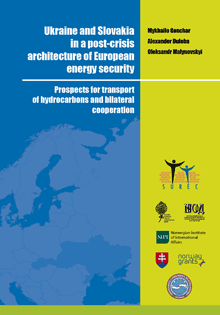
Political transition and the rise of Islamist politics in post-revolution Tunisia 
(122 Kb)

By Naim Ameur,
Senior Manager, Prime Ministry of Tunisia
EGF Affiliated Expert on Maghreb politics
Tunisia embarks upon the process of transition to democracy
It is now a well established fact amongst both the general public as well as the specialist of Middle Eastern politics that Tunisia under the almost-quarter century long rule of former President, Zine el Abidine Ben Ali, was managed by a highly restrictive and rather authoritarian political system. The system empowered key pro-regime political instruments such as the Constitutional Democratic Rally simultaneously to ensuring that opposition political parties remained largely powerless or even being loyal to the regime. Other regime opponents, such as Tunisia’s Islamists, found themselves in exile and for the most part expelled from the country. While this is not surprising, given the dearth of democratic political culture in the Middle East and North Africa (MENA), this likewise ensured that the country remained a “political wasteland” under its former president, who created what some local scholars now refer to as “political desertification”. READ MORE
- Naim Ameur | Date: 12.07.2011 |
Published on EGF: 11.07.2011 | External Relations
-
Ukraine and Slovakia in a post-crisis architecture of European energy security 
(6 Mb)
 A wide strip of mainland and continental shelf territory starting from the Rus- sian sector of the Arctic up to the Arabian Peninsula can be labelled an Arctic - Arabian hydrocarbon belt (CH-belt) of Eurasia. It is the strip where the major mainland oil and gas fields are located on the territory of Russia, Kazakhstan, Uzbekistan, Turkmenistan, Iran, and the Gulf and Arabian Peninsula countries. As the production of hydrocarbons has been developing, transport routes to the markets of their consumption, the major of which is the European Union, started to branch off this diagonal CH-belt of Eurasia in the latitudinal direction. Practically, these transport routes connect the area of production (upstream) with the consumption market (downstream).
A wide strip of mainland and continental shelf territory starting from the Rus- sian sector of the Arctic up to the Arabian Peninsula can be labelled an Arctic - Arabian hydrocarbon belt (CH-belt) of Eurasia. It is the strip where the major mainland oil and gas fields are located on the territory of Russia, Kazakhstan, Uzbekistan, Turkmenistan, Iran, and the Gulf and Arabian Peninsula countries. As the production of hydrocarbons has been developing, transport routes to the markets of their consumption, the major of which is the European Union, started to branch off this diagonal CH-belt of Eurasia in the latitudinal direction. Practically, these transport routes connect the area of production (upstream) with the consumption market (downstream).
- Mykhailo Gonchar, Alexander Duleba, Oleksandr Malynovskyi | Date: 28.06.2011 |
Published on EGF: 27.06.2011 | Energy
-
Poland’s elusive quest for energy security: core challenges for the medium term 
(88 Kb)
By Hrvoje Ćiković, Expert on EU Integration, Energy Security and New Diplomacy
In recent years energy security has become not only a political buzzword but a fundamental concept in (re)shaping relations between governments within the
framework of a newly emerging global energy order. Furthermore, factors such as the growing asymmetrical dependence of energy consuming states on producing states, the delicate question of transport (particularly the definition of future pipeline routes), changing trends of economic development, and geopolitical tensions tend to distort established negotiating positions and shift the balance of global power relations. In such a complicated context, it is easy to overlook developments in countries such as Poland which are not in the international spotlight. As Poland has shown resilience in avoiding recession and is becoming an important player in the international arena, it may be interesting to examine the actual dynamics and the core challenges of the country’s energy sector. READ MORE
- Hrvoje Ćiković | Date: 22.02.2011 |
Published on EGF: 25.04.2011 | Energy
-
Algeria: The Risks of slipping into deeper political crisis
By Eugen Iladi, Independent Expert
The dramatic events in Tunisia and Egypt, where long-serving presidents have been ousted within weeks of each other by “street-led people’s revolts”, are inspiring demonstrators in other Muslim countries to demand structural political change. Libya is currently gripped by deep political crisis, as is the tiny Gulf Monarchy of Bahrain, whilst revolts are ongoing in Yemen, Morocco and Iran. Furthermore, Algeria seems to be one of the next countries possibly hanging in the balance, where the prospect of regime change must now be a question of serious concern.
Algeria is a country of vital importance both to the stability of the wider-Maghreb and Sahel-Sahara region as well as to European interests. The country is a major energy supplier to international markets. Sonatrach, Algeria’s national oil and gas champion is crucial to the country's ability to generate public revenues and any disruption would simply lead to more strife in the country. Sonatrach and Algerian oil and gas resources are important not just to Algeria: the European Union's security of energy supplies, U.S. energy interests, as well as Russia's energy investments all stand to suffer if Algeria becomes unreliable. Add to that fears of an Islamist resurgence in the country and, worse, the existing Al Qaeda threat in the Maghreb, and we are witnessing a very volatile concoction in a region not far removed from civil war and unresolved border disputes. READ MORE
- Eugen Iladi | Date: 22.02.2011 |
Published on EGF: 25.04.2011 | Security
-
Moscow Domodedovo airport terror act: between shallow security and social unrest
Mikhail Roshchin, EGF Affiliated Expert
While many in Russia have become accustomed to gas disputes with Ukraine as the flagship event hailing in the New Year, the start of 2011 brought with it a far more tragic security crisis when a major bomb blast ripped through the crowded halls of Moscow’s Domodedovo airport. The attack occurred in the arrivals area of the airport at 4.32 pm, on 24 January 2011, claiming the lives of 36 individuals and injuring 116 more. An act of terrorism was immediately assumed by many security experts, possibly involving a suicide bomber, who employed an explosive device containing 5-7 kilogrammes of Trinitrotoluene (TNT). Among the victims was Anna Yablonskaya, a 29-years-old Ukrainian playwright and poet who had come to Moscow to receive a prize from the magazine Art of the Cinema for her recent play. This attack follows the March 2010 suicide bombing in which two women, originally from Dagestan, blew themselves up in Moscow’s underground causing the death of 40 commuters. As was the case in the March 2010 attack, separatist-terrorists from the Russian North Caucasus were suspected of involvement in the Domodedovo attacks. These suspicions appeared to be confirmed earlier this month, when Chechen rebel leader, Doku Umarov, claimed responsibility for the bombing on February 4. In his video broadcast confirming responsibility for the attack, Umarov justified his actions on the basis of Russian state policy in the North Caucasus. READ MORE
- Mikhail Roshchin | Date: 22.02.2011 |
Published on EGF: 25.04.2011 | Security
-
External Relations Briefing: Russian-Jordanian Relations 
(59 Kb)

Jordan has always been a moderate monarchy and, taking into account the role of the British Empire in the foundation of the Hashemite Kingdom, one of the most pro-Western regimes in the Arab East. Jordan’s well-established relations with Russia, which have become even closer and warmer during the last decade, might therefore seem surprising. However, in the Middle East, perhaps even more than in any geopolitical regions, neither generalizations nor stereotypes are able to reflect complex realities. Moscow and Amman have a number of reasons to preserve and cultivate their cooperation
- Andrej Kreutz | Date: 13.07.2010 |
Published on EGF: 13.07.2010 | External Relations
-
The EU-Russia Energy Partnership: Russia's Arctic Uncertainty 
(154 Kb)

Summary of Panel II: Russia’s Arctic Uncertainty
The discussion in the second panel of the online session, which focused on the future of upstream energy exploration projects in the Russian Arctic, brought out the following messages for European policy makers and was supported by the ensuing extended commentary. READ MORE
- EGF Editorial | Date: 14.05.2010 |
Published on EGF: 21.05.2010 | Energy
-
The EU-Russia Energy Partnership: The Future of the Energy Charter (..and the Debate over the Third Package) 
(162 Kb)

Summary of Panel I: The Future of the Energy Charter and the Debate over the Third Package
The energy trade between Russia and the countries of the European Union (EU) is of fundamental significance for the energy security of each party. Despite the close proximity of the EU-Russia energy relationship, however, the legal and political basis underpinning this relationship, particularly with regards to the gas trade, has proven itself inadequate in guaranteeing the energy security of both parties. Russia's recent announcement of its intention "of not becoming a member" of the Energy Charter Treaty, and new proposal for global energy security has created further uncertainty. While it is hoped that a new government in Kiev will lead to an improvement of Russian relations with Ukraine, Ukraine's national gas transportation operator remains in a difficult financial position and another gas crisis embroiling Ukraine, Russia and the EU, whilst hardly imminent, cannot be entirely ruled out.
- EGF Editorial | Date: 14.05.2010 |
Published on EGF: 21.05.2010 | Energy
-
Changing EU Energy Legislation: Practical Scenarios for Strengthening the EU-Russia Energy Partnership 
(162 Kb)

Energy Roundtable Summary Document
The EU-Russia energy roundtable discussion held at the Institute of World Economy and International Relations (IMEMO) on February 26, 2010, brought together a significant number of well known experts and policy makers engaged in the EU-Russia energy relationship in order to assess some of the challenges which presently exist in this sphere. Some of these challenges are summarised below. The objectives of the seminar organisers were to create an environment in which experts and policy makers could openly and candidly discuss the challenges standing before the EU-Russia energy relationship. The roundtable was also attended by a large number of participants from academia, government, energy companies and the diplomatic community.
- EGF Editorial | Date: 17.05.2010 |
Published on EGF: 17.05.2010 | Energy
-
EGF Foreign Policy Briefing: Russian Relations with the Syrian Arab Republic 
(58 Kb)

Although Russia is now concentrating on its near abroad (the states and territories of the former Soviet Union), not global domination, for both geo-political and strategic reasons, the Arab and Muslim countries of the Middle East are of substantial and even growing interest to Moscow. Its bilateral relations with Syria are of particular importance for both parties and are not without impact on the whole region.
- Andrej Kreutz | Date: 05.05.2010 |
Published on EGF: 05.05.2010 | External Relations
-







